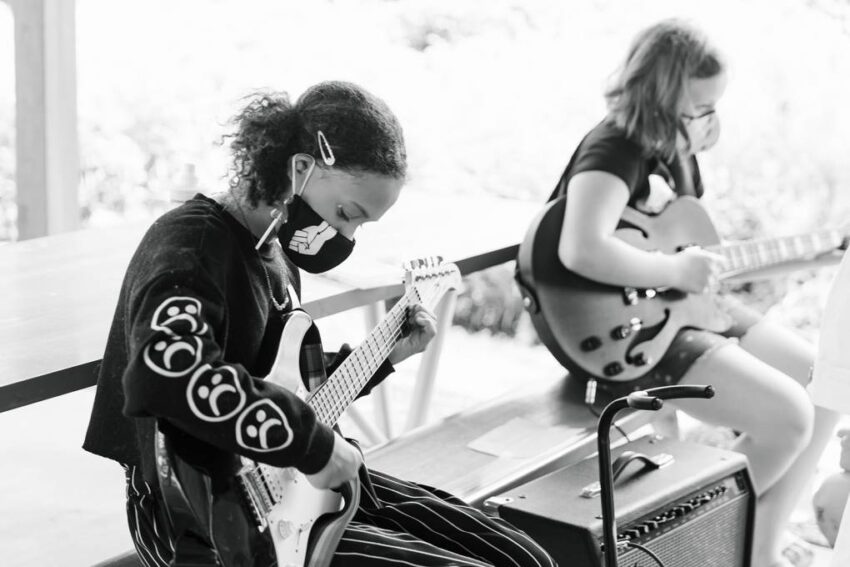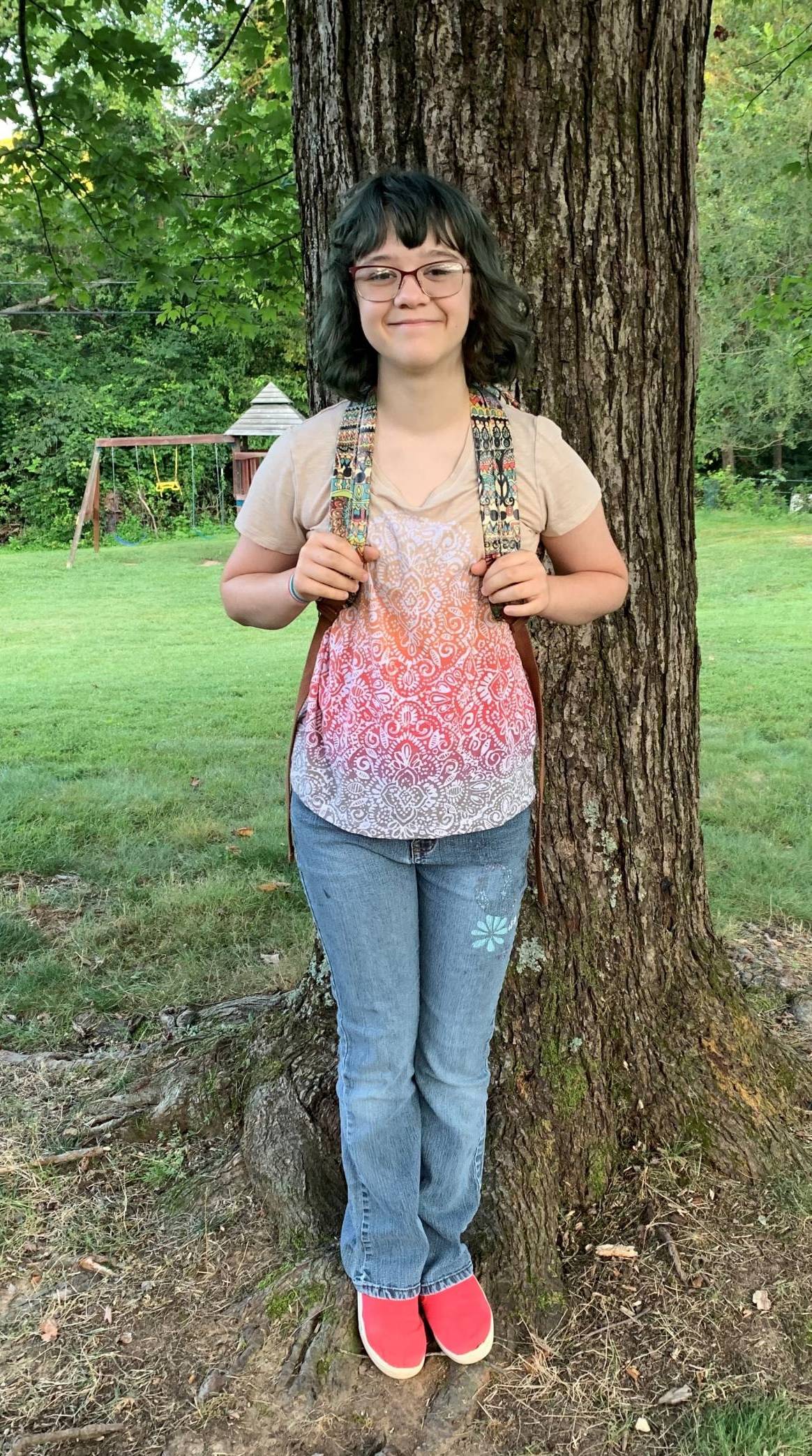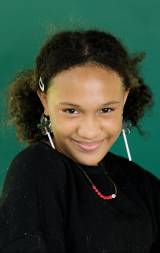
Youngsters like Isabella really feel not solely extra pissed off, depressed and hopeless than youngsters in previous years, but in addition energized and optimistic concerning the future (in response to a brand new Washington Post ballot). Nobody has a crystal ball about how this era of younger folks will likely be affected by these final two years — and race, class and different components be certain that all tweens and teenagers have skilled the previous couple of months in a different way.
Studies have discovered that younger teenagers are being challenged with psychological well being points, social isolation and slipping grades now greater than ever. They’ve additionally been uncovered to extra debates about range, racism and sexuality, whereas illness and dying surrounds them. Can historical past, science, and tales from younger adolescents themselves give us perception about how all this may add as much as form this impressionable inhabitants?
Steven Mintz, a historian on the College of Texas at Austin and creator of “Huck’s Raft: A Historical past of American Childhood,” says that huge traumatic occasions just like the Nice Melancholy go away “invisible scars” that may form the character of a era, even when people have totally different life circumstances. For instance, the youngsters that lived by the Nice Melancholy anxious about cash as adults, he stated. And earlier than that, after World Conflict I and the 1918 pandemic, there was a “revolution in morals and manners,” he stated, during which many younger ladies specifically defied their elders by bobbing their hair, carrying brief skirts, taking over smoking and enjoying tennis as methods to say their independence.
“That was actually a response to this traumatic set of experiences of the ‘warfare to finish all wars’ [and] this horrible pandemic that they went by,” he stated.
“I believe there’s an actual chance that younger folks may, I can’t predict, however they could be extra hedonistic and extra risk-taking and extra rebellious in 100 other ways as a result of they’ve had sufficient of this lockdown,” stated Mintz. “It wouldn’t shock me in the event that they’re a little bit like the youngsters of the 1920s who, you already know, they simply, they wish to be wild and rebellious ’trigger they’ve had sufficient of this and their adults allow them to down.”
Judith Warner, creator of “And Then They Stopped Speaking to Me: Making Sense of Center College,” says the large upheaval that usually marks center college was exacerbated by the well being and racial crises over the previous couple of years, and certain traumatized and toughened children. “It’s a second once we are separating ourselves from our households of origin. We have gotten extra impartial at that time. That’s a really insecure second of attempting to determine who you’re and the place you match,” she stated. “There was only a hardening, you already know, on each degree that we noticed that was enjoying out with children that age too.”
On the similar time, loss and isolation “pulled them out of what must be most vital to folks at that age, which is their social lives and their social world,” Warner stated. “All of that was stunted.”

Amy Oelsner, who runs Ladies Rock Bloomington, a music camp for ladies and gender nonconforming preteens in Indiana, says she’s seen detrimental and positives amongst children who attend her camp. “It simply felt like they weren’t, you already know, as carefree children as a lot, which was sort of unhappy,” she stated. “However on the similar time, I felt that they have been very resilient and really adaptable.”
In fact, the very notion of a “carefree” childhood displays a extra Westernized perspective, which doesn’t acknowledge the truth that younger folks typically “develop up with heavy stuff that doesn’t match inside the notion of childhood as being a ‘carefree’ existence,” stated Kate Cairns, a childhood research knowledgeable at Rutgers College-Camden. She cautions in opposition to making too many comparisons to previous generations or predictions about what may turn into of this one.
If something, she stated, the expertise of the final two years exhibits how systematic inequality impacts younger folks in a different way.
Warner, nonetheless, believes that it’s protected to foretell that this group of center schoolers will turn into extra dedicated to social points. “I really feel like there’s the potential for this era because of all the pieces that they witnessed to turn into far more compassionate and socially engaged and empathetic,” she stated.
The experiences of a number of younger folks mirrored this sentiment.
“My dad watches a number of CNN, so I see a number of what’s taking place, and it makes me actually unhappy. Although my pores and skin is de facto white, I nonetheless felt actually scared,” stated 12-year-old Myra Thrasher who attended Ladies Rock Bloomington. “I thought of myself to be sort of like, at the very least a little bit empathetic, but in addition I used to be scared. I’m not likely certain why, however I sort of was. I didn’t actually know what to anticipate as a result of nobody has ever been in something like this. The entire world was mainly chaos your entire time.”
Fadzai Gides, 11, lives in Bloomington and attends the identical camp. The final yr was arduous, she stated. She struggled to remain motivated in distant college and missed her buddies. She started to turn into extra cautious about folks hugging her. George Floyd’s dying and the flood of reports displaying folks of shade brutalized by police shook her, particularly, as an individual that identifies as biracial. “I used to be simply actually nervous. Even to, possibly, like go outdoors, to go to the pool,” stated Gides. “I used to be like, I may, I might be like a sufferer of police brutality and that’s actually scary.”
Isabella discovered herself exploring new profession paths. Earlier than, she stated, “I simply didn’t actually know what profession path I used to be going to decide on. Now I wish to go into the medical discipline, as a result of I do know that generally throughout protests there might be a few violent shootings. Individuals do get damage, and I do wish to assist these folks,” she stated.
“Final yr I in all probability would have executed one thing with the humanities, like one thing to do with animation or drawing,” she added. “However now that I actually sort of know extra a bit about myself and concerning the world, I modified my mindset about that.”

Fadzai stated that she too has begun to vary her way of living. “Earlier than this, the world simply appeared rather a lot smaller,” she stated.
Fadzai stated she confronts issues that beforehand would have made her uncomfortable. “Now, I identical to, as a substitute of identical to standing again, and never attempting, not like taking a stand and attempting to assist a neighborhood … I simply wish to soar into motion and attempt to assist folks extra.” This yr, for instance, she began a bunch together with her buddies that challenged her college’s curriculum across the instructing of sexual abuse as a result of she didn’t consider that college students have been getting sufficient details about the subject and the way to report it. She believes she made a distinction: Different younger folks received concerned, and faculty directors listened to their complaints and dedicated to creating a change in the way in which the problem is taught.
Isabella additionally determined to turn into an activist for the primary time after being pissed off by the presidential election. She stated she grew to become the youngest member of Teenagers Take Cost, a bunch that advocates for extra instructional fairness in New York Metropolis. It helped give her a option to voice her frustrations. She understands that she will’t “simply power the world to vary routinely,” however discovered that even incremental change is progress.
Each Isabella and Fadzai stated that the pandemic taught them that they needed to learn to pay extra consideration to their psychological well being, one thing that continues to be vital to them because the adults of their lives have generally checked out. “We actually needed to learn to be there for one another when adults aren’t,” Fadzai stated.
In April, Warner wrote an article arguing that center schoolers will basically be okay, and that the trials they’ve confronted must be stored in perspective. In an interview, she argued that college students who have been dwelling with their dad and mom and have been on-line with their buddies and academics weren’t struggling like those that are in solitary confinement or jail. She admits that, with studying at dwelling, issues weren’t the identical for these children within the final two years — “it’s not pretty much as good, it’s simply not — [but] that’s not a comparable degree of deprivation that may trigger neural pathways to not be constructed,” she stated.
Resilience is more likely to be a shared attribute of youngsters going by center college now, stated Mitchell Prinstein, chief scientist for the American Medical Affiliation. “Center college is a time when children are attempting on these new grownup brains and studying the way to use them,” he stated. Center schoolers don’t want our fear, he suggests, in actual fact, they could educate us all one thing about coping with stress.
“They didn’t lose a yr, they simply lived a yr in a world in contrast to most youngsters need to dwell in,” he stated. “That might be good as effectively.”
Fadzai thinks this final yr may have a “combined affect” on her future. She found new passions like baking and enjoying the ukulele and guitar, but in addition needed to fear about how issues have been impacting her family and friends — a few of whom had by no means handled this type of trauma.
“Quite a lot of issues that make me joyful occurred due to the pandemic, but in addition unhealthy issues,” she stated. “So it’s additionally sort of made me a stronger particular person, though it’s introduced a number of unhealthy issues.”
In the long run, Myra stated, she isn’t anxious about what sort of adults she and her buddies could turn into. As a substitute, she is concentrated on the current. “I don’t know if anybody understood what was happening,” she stated. “Most of us are nonetheless alive. I believe that’s sort of what issues.”
















